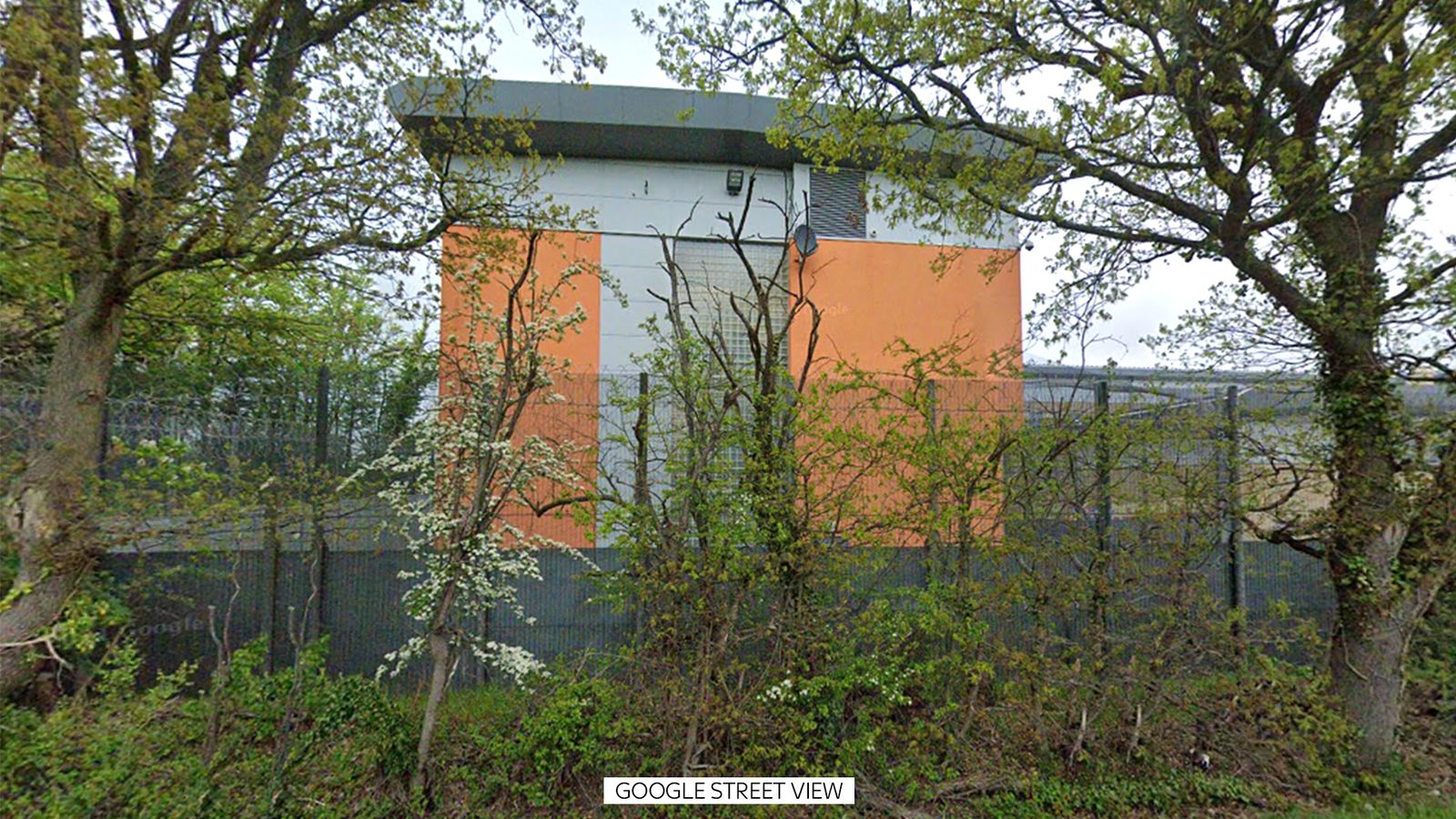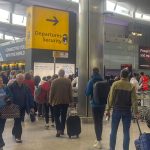“I can’t eat, I can’t sleep. Why must I go to Rwanda?”
Zahir, 25, who doesn’t want to give his real name, fled Iraq two months ago. He said his life was in danger after he got into a fight with a family member who had links with the government and had threatened to kill him.
His 3,500-mile journey through Turkey and Europe took him about a month, mostly travelling in the back of a lorry on a trip organised by human traffickers.
He spent a further nine days in Calais before boarding a flimsy boat to get to the UK, touching shore on 23 May this year.
Less than a month after stepping foot on the beaches of Dover he has been told by UK officials that he, and a friend he travelled with, will be on the first plane to Rwanda on Tuesday.
Speaking to Sky News by phone from Colnbrook House detention centre near Heathrow, he said: “They told me you will go to Rwanda tomorrow. But we say, ‘why we go to Rwanda tomorrow?’
“We are very, very nervous, we are very, very unhappy. We don’t know what to do. We don’t know why we are here.”
Rwanda deportation plan: First flight taking asylum seekers to African country can go ahead, says Court of Appeal
Migrant deportation plan: ‘It’s really hard to get work’; ‘I don’t feel safe’; ‘People here are so welcoming’ – What it’s like to be a refugee in Rwanda
Rwanda deportation plan: Prince Charles ‘says policy is appalling’ as court rules first asylum seekers can be sent away
Opportunities for a legal challenge are dwindling and it looks ever more likely Zahir will fly 6,000 miles to yet another continent and a very uncertain future.
He says “I can’t eat, no sleep, nothing. We don’t want to go to Rwanda. The home office, they just asked ‘why you leave Iraq? Why you want to claim asylum?’ and I just say ‘my life in danger’.
Read more:
First flight taking asylum seekers to African country can go ahead, says Court of Appeal
What is it like to be a refugee in Rwanda?
Why are migrants being sent to Rwanda and how will it work?
“They say ‘OK’ and give us a ticket to say that your case has (been) refused. And they give us a ticket, removal direction to Rwanda. They didn’t ask another question about what happened, or why, with who.”
At a similar detention centre, Brook House in Gatwick, Sayed (not his real name) and his friend have managed to postpone their deportation to Rwanda.
Both are from Afghanistan. Sayed left in 2018 and his friend Abdul fled last year as the Taliban took control of the country. Abdul claims to have been caught in an explosion and is still in pain from the wound.
“The Taliban tried to kill him,” says Sayed, speaking by phone inside the detention centre. “He got hit by a bomb. He’s still suffering. He’s got a lot of pain in his head, hand, his body. He’s always going to the doctor and taking tablets.”
Sayed first came to the UK aged 15 in 2008, then he went to France and was detained coming back on a boat earlier this year.
He paid traffickers £1,900 to cross back over the English Channel. He has family in Birmingham and hopes he’ll be able to join them. He says both he and Abdul would rather die than be deported to Rwanda.
Please use Chrome browser for a more accessible video player
“We are going to kill ourselves. It’s very difficult for us you know. We ran away from our country, and they are now sending us to Rwanda. This is not right. We want our rights in the United Kingdom. I never heard of Rwanda in my life.”
There is little for Sayed and Abdul to do but wait.
Behind the barbed wire fences at Brook House detainees can catch a glimpse of planes barrelling down Gatwick airport runway, just across the road. None of them know for sure whether soon they will be on a plane heading to Africa.
If they do, it is not because they don’t have a right to claim asylum in the UK, but because they came to the UK by paying traffickers to cross the channel on a boat, and the government believes this policy will deter others from doing the same.
The government said it had expected legal challenges, but as of writing, the first flight for Rwanda is still scheduled to leave on Tuesday.






















